The Handmaiden - 'At that moment one drop of insanity could cause someone to go completely mad'.1/31/2017 Park Chan-Wook’s “The Handmaiden” is a romantic tale, vindicate thriller and confuse film set in Japanese-involved Korea in the 1930s. It is attractively excellent, honestly sexual, once in a while unreasonable and horrendously fierce. Now and again its extremely presence feels peculiar. But the greater part of its divergent pieces are amassed with such care, and the characters composed and acted with such mental sharpness, that you once in a while feel as though the essayist chief is rubbing the gathering of people's nose in overabundance of some kind. This is a film made by a craftsman at the pinnacle of his forces: Park, a South Korean executive who began as a faultfinder, has numerous incredible or close extraordinary sort movies, including "Oldboy," "Sensitivity for Mr. Retaliation," "Woman Vengeance" and "Thirst," yet this one is so perplexing yet quick that it feels like the summation of his vocation to date. Park Chan-wook is an ace of present day silver screen with the greater part of his movies handling fundamentally unique material, as well as being undertakings that are all jaw-droppingly wonderful in various ways. The executive's latest movies—I'm A Cyborg, But That's Okay, Thirst, and Stoker—all display an advancing producer that is reinforcing his stranglehold of the medium. Park Chan-woo has picked up a great deal of reputation with his Vengeance Trilogy, yet The Handmaiden seemingly goes about as the last piece in his Lust and Temptation Trilogy that started in Thirst, was carried on in Stoker, and blooms a large number of its topics here. All the more particularly, these movies are vigorously intrigued by the delight of sensuality and freedom from sentiments of blame. The Handmaiden prevails in the perfection of these thoughts, additionally similarly as a deliberate story of suggestive control. It's My Fair Lady meets Audition. Set in a Japan-involved Korea in the 1930s, the story sees Count Fujiwara employing a pickpocket and criminal specialist, Sook-hee, to wind up distinctly the handmaiden of the monitored and delicate fancy woman, Lady Hideko. Sook-hee's employment is the greatest con of all with her main goal being to make Hideko succumb to Fujiwara, who can then drain the affluent lady dry. At last however, Sook-hee winds up getting to be distinctly charmed with Hideko herself and the majority of the characters in play slowly get to be distinctly required in a developing adoration polygon. Stop has adjusted the story from British creator Sarah Waters' novel, Fingersmith, however has sufficiently changed center ideas that Waters' novel is a greater amount of only a motivation here. Park Chan-wook positively plays into the substantial trickery that is lingering palpably. He transforms The Handmaiden into an account of control that is as mind boggling as the one on Bryan Fuller's Hannibal, as slow a part inversion as The Double, and trickling in almost the same number of sexual head recreations as Dangerous Liaisons. This is only an intensely deceptive motion picture when all is said in done where you should be suspicious of each line of discourse, as well as each smaller scale signal. ' Nothing here is real. The Handmaiden at Cannes Cannes Review: ‘The Handmaiden’ is a Sexy and Depraved Lesbian Revenge Story (From left) Actor Ha Jung-woo, actress Kim Min-hee, director Park Chan-wook, actress Kim Tae-ri and actor Cho Jin-woong pose for cameras after the premiere of “The Handmaiden” at the Grand Theatre Lumiere on Saturday at the 69th Cannes Film Festival. (CJ Entertainment) It's too simple to categorize Park's concentrate on realistic sex and sadomasochistic minutes as outlines of his reductive narrating strategies, which underscore his inclination for stun an incentive under the appearance of expound filmmaking systems. It's actual that his abundance on occasion veils the shrewder perceptions about class and sex permeating all through the material, at the end of the day it changes them into a women's activist retribution plot with a lot of cathartic minutes. And keeping in mind that it's far from "Blue is the Warmest Color," the itemized choreography of the sexual moments generates a shockingly captivating level of sentimentalism. Park’s a smarter director than his unsavory tactics might suggest, and while "The Handmaiden" isn’t his most cohesive work, it’s driven by a pointed ideological perspective. Rather than merely sensationalizing corruption, he uses it to give credence to his characters’ wavering moral compasses. No matter its overarching ridiculousness, "The Handmaiden" remains a hugely enjoyable dose of grotesque escapism from a master of the form.
0 Comments
This film is an experience that can not be measured, because it was made according to the recipe of the past. It was made the language of the seventies and eighties of the 20th century, the universal language, but a language that is rarely applied. Cinematography today opens up various windows, watching movies on your phone, iPad .... and less in the theater. So hello, that film you generally needed, in which Monica Bellucci wrestles a terrible CG wind on a minefield as detonating sheep pour down all around while adjacent, 2-time Palme d'Or-winning chief Emir Kusturica, playing a milkman with a broken leg, is spared when his closest companion, a peregrine hawk, pecks out the correct eye of the rebel ex-armed force commando attempting to kill him, is here. Kusturica's "On the Milky Road" is a debilitating, heartburn initiating maximalist tall tale that is part Aesop, part Looney Tunes, part Danielle Steele, and all Kusturica — be careful with the term mysterious authenticity: there is nothing of this present reality here. Urgently overfull of knickknacks and knickknacks and messed foundation activity, and everything except drained of topicality, significance or understanding, the film has been in progress for a long time now — one envisions Kusturica tinkering with it interminably in the carport like a Sunday specialist. Disclosing time must come, yet with "On the Milky Road," Kusturica tosses back the sheet and we're confronted not with the impeccably reestablished vintage Rolls Royce we may have sought after, however with a banging, wheezing Rube Goldberg jalopy, all steam shrieks and perfect timing dials, reverse discharges and pounding its riggings, burping smoke, commotion and pointlessness. It does, in any case, have a totally breaking opening, when for only a couple of minutes, that loopy, folksy Kusturican goofiness completely works. In a modest group of homestead structures set in the beautiful Serbian wide open, sheep baa and dairy animals moo and a rush of woofing geese waddle by as two men drag a pig into a horse shelter for uproarious butcher, developing with cans of blood that they exhaust into a stranded bath. The geese, apparently mysteriously, hop into the shower and fold about, dousing themselves in gut, which all bodes well minutes after the fact when, in the midst of a great deal of other malarkey, we see a billow of flies slide, and the geese get the chance to nibble on them for elevenses. Treasure this snapshot of Old Macdonald clowning around, on the grounds that it's apparently the last time any of the contemplated wackiness of the human or creature conduct has a genuine explanation for it. As opposed to early introductions, we're not in some kind of rustic nineteenth century idyll — ambiguous helicopters thundering overhead and an adjacent civilian army station, at which fighters squabble and chatter, especially unconcerned by the blasts and gunfire pouring down all around, recommend that the film is really set in the '90s at some point amid the Yugoslav Wars, in light of the fact that it's set any genuine time by any stretch of the imagination. More than a conspicuous chronicled period we're in a dream Kusturicaville, that exists in such a perpetual condition of war that it has turned into the standard, and disobediently crackpot provincial life has developed in around it like weeds recovering a surrendered vehicle. On the Milky Road is inspired by Kusturica’s short film Our Life, and consists of three stories: the first story is about a soldier with a task to get milk in the nearby village and take it to fellow soldiers. The second is about a woman who gives him the milk, and the third is about an ex-soldier (now a monk) who, when he finishes all daily duties, climbs up the cliff with a bucket of rocks to empty it. The movie unfolds as a three part narrative following three challenging periods of this man’s life, both for him and his native land: on the difficult period while at war, on a blossoming time when he falls in love for a woman who is willing to sacrifice all to save him, and during his last days as a reclusive monk which looks back to his turbulent life. "On the milky road" is a great humanist and pacifist story with all the emotions that show the deep absurdity of the war in the former Yugoslavia. All wars in general. Film noir is . . . 1. A French expression signifying "black film," or film of the night, motivated by the Series Noir, a line of shabby soft cover books that interpreted hard-bubbled American crime authors and found a famous group of onlookers in France. 2. A motion picture which at no time misdirects you into intuition there will be an upbeat completion. 3. Areas that stink of the night, of shadows, of rear ways, of the secondary passages of favor spots, of loft structures with a high turnover rate, of cab drivers and barkeeps who have seen it all. 4. Cigarettes. Everyone in film noir is continually smoking, as though to state, "On top of everything else, I've been assigned to get through three packs today." The best smoking motion picture ever is "Out of the Past," in which Robert Mitchum and Kirk Douglas smoke angrily at each other. At a certain point, Mitchum goes into a room, Douglas expands a pack and says, "Cigarette?" and Mitchum, holding up his hand, says, "Smoking." 5. Women who would just as soon kill you as love you, and vice versa. 6. For ladies: low neck areas, floppy caps, mascara, lipstick, changing areas, boudoirs, calling the concierge by his first name, high heels, red dresses, elbowlength gloves, blending drinks, having hoodlums as beaus, having weaknesses for alcoholic private detectives, needing a great deal of another person's ladies, sprawling dead on the floor with each appendage carefully masterminded and each hair set up. 7. For men: fedoras, suits and ties, shabby private lodgings with a neon sign squinting through the window, getting yourself a drink out of the workplace bottle, autos with running sheets, throughout the night coffee shops, securing kids who shouldn't play with the enormous folks, being on first-name terms with manslaughter cops, knowing many people whose depictions end in "ies, for example, bookies, newsies, addicts, alkys, racers and cabbies. 8. Films either shot in high contrast, or feeling like they were. 9. Relationships in which love is just the last flounder card in the poker session of death. 10. The most American film sort, in light of the fact that no general public could have made a world so loaded with fate, destiny, dread and selling out, unless it were basically credulous and idealistic.
Before the Rain brought a dream of "Balkan struggle" to the world that drummed up a buzz in the mid-1990s, winning the Golden Lion in Venice and an Academy Award selection. Five years of progressively horrendous news from the previous Yugoslavia, with wild battling and slaughters in Croatia and Bosnia, made Milcho Manchevski's singing yet expressive film convenient to a degree that couple of producers have ever accomplished. In any case, this is a long way from a narrative treatment of Balkan savagery, and the nation that Manchevski put on the guide—his local Macedonia—was in reality the main Balkan state around then not to have been overwhelmed by war or ethnic clash. Manchevski had not embarked to clarify the staggering arrangement of occasions that began in 1991, as government Yugoslavia broke down amid the year that saw the Soviet Union itself go into disrepair. Having experienced childhood in Skopje, he completed his film instruction in the United States, where he started to make a notoriety in music recordings amid the eighties. What's more, the capturing pictures and prodding emotional structure of Before the Rain draw something from this experience. Be that as it may, if Manchevski has a place with the era of movie producers who have grown up with the popular verse of music recordings as a major aspect of their normal vocabulary, his other motivation is without a doubt the western—an impression affirmed by his similarly aggressive second element, Dust (2001). Think about the westerns of Sam Peckinpah, elegiac tributes to a lifestyle being smashed by innovation. Then again of Sergio Leone, whose movies were once scornfully known as "spaghetti westerns" however were really ornate minor departure from the colossal American western custom, and impacted postsixties producers all over. Peckinpah and Leone managed in myth instead of history, and weren't hesitant to utilize extraordinary viciousness for both aesthetic and sensible impact. The savagery that tears through Before the Rain, on Macedonian slopes and in a London eatery, draws on such coaches for its effect. What's more, when Manchevski demands that his film is not "about" Macedonia, or even only the Balkans, he's definitely trying to that same all inclusiveness recently, extraordinary westerns, for example, Once Upon a Time in the West or The Wild Bunch. The assume that his legend, Aleksandar, cuts is now a sentimental one in London however turns out to be unquestionably a westerner back in Macedonia, as he comes back to his old town, just to be quickly gone up against by a weapon toting youth. The specifics in the film are precisely adjusted, not to incite a critical reaction ("more Balkan anarchy") yet to clarify this is a perpetual, repetitive process, as Muslim censures Christian thus incites striking back by Christian. The two outfitted packs we meet in the film's initial segment, both with their trigger-glad shooters, are in fact counterparts, however one cases to retaliate for Christian Macedonian respect and the other Muslim Albanian qualities. However, we ought to be evident that nor is intended to be normal of present day Macedonians, of the kind we see quickly when Aleksandar lands in Skopje, any more than they're average of the optimists and pioneers wherever that we call fear mongers today. Terrorism was certainly on Europe’s agenda when Manchevski first composed his layout for the film in 1991, in the wake of paying an arrival visit to Macedonia. In any case, bombs, deaths, and kidnappings were then more basic in Britain, Italy, and Germany, as we're reminded by the radio news Anne listens to in her photograph organization office amid the London scene. Irish republican bomb alarms were practically standard in England from the seventies to the finish of the nineties, which loans credibility and power to her separating with Aleksandar in a London burial ground. He's abandoning her in a London under fear based oppressor risk to do a reversal to "quiet" Macedonia. What is so striking about Manchevski's round frame, similar to a Borges story or an Alain Resnais film, is that Anne is viably seeing pictures from the future on her London light box. This is a world connected by savagery: quite a bit of it interceded by photography and news yet every last bit of it conceivably nearby and ridiculous, as both heroes will find so mercilessly. It was undoubtedly the feeling that Manchevski could recount a genuinely European story, instead of simply a Balkan one, that connected with his supporters. Simon Perry, the maker of more than twelve exceptional European movies while heading the state financial specialist British Screen, turned into a moving power behind the film; and Britain's European Co-creation Fund additionally contributed, as frenched makers and the Ministry of Culture of the still youthful Republic of Macedonia. For two decades, European governments and cross-outskirt bodies have been grappling with the issue of connecting their individual film ventures to end up distinctly more compelling and to recount stories that demonstrate the truth of a landmass where London and Skopje are just a couple of hours separated, with individuals continually going between them. Prior to the Rain drove the path for different midnineties movies that figured out how to do this, for example, Ken Loach's Land and Freedom (1995) and Lars von Trier's Breaking the Waves (1996). Every one of the three of these were extensive film industry and also celebration and basic triumphs in various nations. And by and large intense, sincerely complex stories implanted in their scenes and characters' histories. However all were shot on shoestring spending plans quietly amassed from differing sources. What's more, Before the Rain about endured the sort of a minute ago calamity that is a recognizable element of European filmmaking, when one of its unique supporters, Channel Four Television, hauled out, leaving British Screen to spare the creation. One figure common to von Trier’s breakthrough film and to Before the Rain is Katrin Cartlidge, who died suddenly at the age of forty-one, in 2002. In the wake of getting her begin in TV cleanser musical drama and satire, Cartlidge developed in the mid nineties as a striking and bold performing artist. She made her presentation in Mike Leigh's Cannes victor Naked (1993), playing a divided out someone who is addicted in this grim parody of cutting edge behavior, then turned into the blurb picture for Manchevski's film, before going ahead to star in two further Leigh act of spontaneities, Career Girls (1997) and Topsy-Turvy (1999). She came back to the Balkans in Danis Tanovic's No Man's Land (2001), set amid the Bosnia-Herzegovina strife, playing a correspondent. Cartlidge was never charming in any routine way, however she conveyed nearness and conviction to every one of her parts in a grievously short vocation. In Before the Rain, she figures out how to connect the inlet between contemporary London and "ageless" Macedonia, between an advanced profession lady juggling employment and connections and a statuesque grieving figure in a classical scene. Rade Serbedzija, a recognized Croatian stage on-screen character and star of Yugoslav silver screen and TV, does likewise, in switch. He had lived estranged abroad like the photojournalist he plays, a fascinating figure in the film's focal London grouping, before he comes back to Macedonia and tries to get the strings of his previous lifestyle in a group that is currently dangerously energized. Aleksandar kicks the bucket attempting to safeguard the Muslim young lady we have seen toward the start of the film, when she is ensured by a blameless youthful minister, Aleksandar's nephew, touchingly played by the rising French on-screen character Grégoire Colin. Serbedzija's own life has reverberated his part in the film, as he has worked for peace and compromise in Bosnia, acting with Vanessa Redgrave in Sarajevo, while additionally seeking after a fruitful profession in Hollywood silver screen. Before the Rain brought a specific picture of the Balkans to an expansive gathering of people, and propelled both Macedonia and Manchevski on the world stage—and being the primary film shot (halfway) in Macedonian to be broadly observed universally. However, with over ten years of insight into the past, we may think about whether its prosperity was as much because of its opportuneness as to its inherent qualities. I had the uncommon experience of participating in a universal class dedicated to the film, held in Florence in 1999, at which specialists in numerous parts of its experience and setting talked more than two days. The way that the film could maintain such nitty gritty examination was at that point essential. Be that as it may, what likewise developed was the means by which well Manchevski's craving to make something that was not reportage or history or a political examination had prevailing with regards to leaving the film open to various understandings. Milcho Manchevski is a New York-based Macedonian-born film director, writer, photographer and artist. His Academy-award nominated film Before the Rain won the Golden Lion at the Venice Film Festival, FIPRESCI and Independent Spirit, along with 30 other awards. The New York Times included it on its "1,000 Best Films Ever Made" list. Manchevski has directed four other features - Bikini (2017, in post-production) Mothers (2010), Shadows (2007) and Dust (2001), an episode of HBO's The Wire and 50 short forms (including Thursday, which was part of the Venice Feature Reloaded (2013). He has won awards for his experimental films (1.73), music videos (MTV and Billboard for Tennessee) and commercials (Macedonia Timeless). His work had more than 250 festival screenings (including Venice, Berlin, Toronto, Sao Paolo, Istanbul, Tokyo, Jerusalem, Hong Kong, Stockholm, etc. His films have been distributed in more than 50 countries. He has published books of fiction (The Ghost of My Mother), essays (Truth and Fiction: Notes on Exceptional Faith in Art) and photographs (Street and Five Drops of Dream, books that accompany two exhibitions of photographs). Manchevski has staged performance art by himself and as a (founding) member of the group 1AM. His work has been included in the curricula of numerous universities and has been the subject of two academic conferences (in Firenza and Leipzig); he holds an Honorary Doctorate from Moscow's VGIK. Manchevski has taught and guest-lectured extensively: University of Cambridge, Columbia Univesity, VGIK, Filmuniversitat Babelsberg "Konard Wolf", University of Chicago, University of Tokyo,Yale University, The Arts University College at Bourenmouth, Carleton University in Ottawa, Baltic Film and Media School, Elon College, Mahidol University Interanational College - Bangkok , Minsk University, Southern Ilinois University, Union College, University of Bielefeld - Germany, Universidade Federal do Rio Grande do Sul - Brazil, University of Central Florida, University of Washington, FDU - Belgrade, University of Texas in Austin, Cineteca di Bologna, University of Oklahoma, and most notably as Head of the Directing Studies at NYU's Tisch School of the Arts' Graduate Film program. He is currently teaching directing at the Feristein Graduate School of Cinema at Brooklyn College. source: www.imdb.com "Near tears, he cleared out at the interlude": how Stanley Kubrick shaked up Arthur C Clarke1/22/2017 The conflict of wills behind 2001: a Space Odyssey advises me that logical instruction, not puzzle, was constantly nearest to my companion's heart. Individuals were habitually astounded to discover that Arthur Clarke and I were great companions. He is viewed as the doyen of idealistic, specialized, Space Age theoretical scholars, trusting our species' salvation to lie totally in logical revelation and building creation, his fiction loaded with definite elucidation, in some cases basically undefined from truth. I am generally depicted as the dissenter of the SF "New Wave", dismissing material science for brain research and supporting social topics over space stories, having a tendency to analyze the drawback of innovation. However really we had comparable standards. Quite a bit of our initial work foreseen propels in astronomy while managing the psychic eventual fate of humanity. Numerous years after our initially meeting I gave a gathering where I acquainted Arthur with William Burroughs, the Beat creator of Naked Lunch. Nobody anticipated that them would have a considerable measure in like manner, however they spent the following couple of hours together, tasting squeezed orange, once in a while requesting the music to be turned down on the grounds that it was ruining their discussion. Conceived two days (and 22 years) separated, we met when I was 15, in the blink of an eye before he went to live for all time in Sri Lanka. He was hilarious, empowering, libertarian and liberal, as inspired by investigating the ocean as inspecting space. We would by and large meet at whatever point he was in England, for the most part at the Globe bar in Hatton Garden, where might be journalists could visit coolly with set up creators, for example, John Wyndham, John Christopher and C S Lewis; the SF society had moved to the Globe from the White Horse in Fetter Lane in the mid-1950s. Arthur had effectively composed his carefree Tales from the White Hart (1957) in tender memory of the Fetter Lane bar. Prior to the war he and some kindred SF scholars had shared a level in Gray's Inn Road. His flatmates as of now called him "Self image" as a result of his aggregate ingestion in the subjects that intrigued him. He happily acknowledged the epithet. Brought up in Somerset, Arthur came to London in the late 1930s to fill in as a benefits examiner for the Board of Education, yet space travel was at that point his main energy. A dynamic individual from the British Interplanetary Society, he grew up perusing all the SF he could discover, a large portion of it in US mash magazines, however H G Wells and Olaf Stapledon (the creator of the epic Last and First Men) remained his central impacts. He contributed as often as possible to the pre-war SF fanzines, co-altering Novae Terrae ("new universes") in its unique shape. One flatmate and kindred manager, William F Temple, depicted him as very hung and given to "sudden, fierce articulations of gaiety". In the wake of taking a shot at radar in the RAF amid the war, Arthur got a top of the line degree in material science and arithmetic from King's College London, and sold a couple of theoretical articles, including one to Wireless World that proposed interchanges satellites in space. His first offers of expert fiction were to Astounding (later Analog), around then the most prestigious American SF magazine, gaining practical experience in theory in light of hard science, with a solid accentuation on space travel. His later work – including his novella Against the Fall of Night, which turned into his first novel, The City and the Stars (1956) – showed up in rather more showy pulps, for example, Startling Stories. His fiction rapidly carried him prevalence with perusers and in under 10 years he got to be distinctly known, with Isaac Asimov and Robert A Heinlein, as one of hard SF's "Huge Three". "Hard SF" is particular from the kind composed by Orwell, Dick or Ballard, which spends significant time in social and mental theory. Arthur's work was recognized from that of his associates by a practically supernatural lyricism and a confidence in a future where humankind would free itself, through science, of its primitive and ruthless qualities. (Not at all like Heinlein, with whom he in the long run dropped out over the American creator's support for Ronald Reagan's "Star Wars" arranges, he had little enthusiasm for military space fiction.) At first his authentic books, for example, The Exploration of Space (1951), were more effective than his fiction. He was soon ready to bolster himself by his written work, turning into a main master on rocketry and space travel, prepared at whatever point the media required a piece about space investigation. He even informed the makers concerning the running story "Dan Dare, Pilot of the Future", which showed up in my most loved comic, the Eagle, and whose pictures prefigured those of 2001: a Space Odyssey. He built up an unmistakable fascination in scuba plunging; it was one of his central purposes behind moving to Sri Lanka in 1956 not long after the breakdown of his first and final marriage, which had endured only a couple of months. He came back to England frequently, continually remaining with his sibling Fred, his sister-in-law Babs and his mom, Nora, in rural London. At times he accompanied a plunging accomplice, Mike Wilson, and carried film of their campaigns with him. He was amazingly pleased with his submerged disclosures, which incorporated the lost Koneswaram sanctuary in Trincomalee, an essential chronicled site. Some time after his entry in Sri Lanka Arthur built up a significant kinship with the jumper Leslie Ekanayake, whose family received him. He committed his 1979 novel, The Fountains of Paradise, to Leslie, depicting him as the "main impeccable companion of a lifetime, in whom were remarkably joined Loyalty, Intelligence and Compassion". In 1977 he endured a repulsive passionate blow when Leslie was killed in a motorbike crash just before his 30th birthday. Arthur kept on living with the Ekanayake family until he kicked the bucket. He was covered by Leslie. The family and his numerous companions in Sri Lanka portray Arthur as a man of honor of awesome liberality and deep sense of being, despite the fact that he was hostile to religious and put humanity's salvation completely in its own particular hands. There is without a doubt a nature of profound optimism in a large portion of Arthur's real work, including 2001 and additionally quite a bit of his verifiable, a component to a great extent lacking from the composition of his sci-fi peers. In many regards he was maybe the most complex SF essayist of his era: his logical preparing consolidated with an exceptionally coherent personality that was enthusiastically dedicated to mankind and the normal world. However his pride in his accomplishments was clear and he kept on gaining his epithet. In the mid-1970s my companion Angus Wilson went to him in Colombo. When he returned home Angus inquired as to whether (like him) Arthur was gay. A sharp SF peruser, he shared a comparable interest in mankind yet had been fairly overpowered by Arthur's "visit" of his home: surrounded supports, pictures brought with presidents and sovereigns, grants in plain view. Arthur struck him as aggressive and "maybe the most egocentric individual I ever met". Did I think Arthur was anxious about the possibility that that he, Angus, was attempting to upstage him somehow? I guaranteed him that Arthur was most likely recently flaunting. Arthur created polio in the 1980s, making travel progressively troublesome. In a matter of seconds before he was expected to be knighted in Colombo by the Prince of Wales in 1998, the Sunday Mirror distributed disturbing and unwarranted chatter about him. I kept in touch with him to give him my ethical support. He expressed gratitude toward me generous. I ought not stress, in any case, he said. The story was simply an endeavor to humiliate his companion Prince Charles. He guaranteed me that another companion, Rupert Murdoch, was taking care of the matter. The story was soon withdrawn with conciliatory sentiments. There are a few distributed records of how the 1968 film 2001: a Space Odyssey appeared. I comprehended from Arthur that he was to some degree baffled by the sporadic timetable of its chief, Stanley Kubrick. Thus, the novel, which they should compose before the film showed up, turned out after the underlying discharge date. In any case, in the primary he appeared to be content with the coordinated effort, even up to the time that harsh cuts were being appeared. He was, I know, anxious that what with Kubrick's failure to settle down and team up on the novel, with the outcome that the book was because of turned out after the true to life discharge, it may resemble a novelisation of the film as opposed to a original work. Construct principally in light of his short story "The Sentinel", together with other distributed actuality and fiction, the film was especially a joint exertion, despite the fact that Arthur was excessively humble about his commitment. As far as concerns him, Kubrick appeared to be not able thought of a consummation that suited him. When I went by the set, the film was at that point around two years behind timetable and well over spending plan. I saw a few option finale scenes built that were later relinquished. In one form, the stone monument ended up being some sort of outsider spaceship. I likewise knew something that I don't think Arthur ever did: Kubrick was sooner or later disappointed with the joint effort, moving toward different authors (counting J G Ballard and myself) to take a shot at the film. He knew neither Ballard nor me by and by. We declined for a few reasons. I felt it is traitorous to acknowledge. I speculated the issue was a distinction in identity. Arthur was a logical teacher. Clarifications were his strong point. He was uncomfortable with most types of equivocalness. Kubrick, then again, was an instinctive executive, slanted to leave translation to the group of onlookers. These distinctions were scarcely recognized. Neither did Kubrick tell Arthur of his worries with respect to the last form. Where, on account of Arthur, the film was overwhelming with voice-over elucidation and illuminations of scenes, Kubrick needed the story to be told totally outwardly. Without counseling or going up against his co-maker, Kubrick cut a colossal measure of Arthur's voice-over clarification amid the last alter. This choice most likely contributed fundamentally to the film's prosperity however Arthur was caught off guard for it. When he tended to MGM officials at a supper in his respect before the debut, he talked warmly of Kubrick, proclaiming that there had been no genuine contradictions between them in every one of the years they had cooperated, however he had yet to see the finished product. My own speculate the time was that Kubrick wasn't quiet with any proposed determination however had nothing better to offer set up of his co-essayist's "Star Child" finishing. We know now that the long last arrangement, offered without clarification, was presumably what transformed the film into the achievement it turned out to be, yet the fairly lethargic looks on the characteristics of the MGM administrators whom Arthur had tended to in his discourse demonstrated that they were in no way, shape or form persuaded they had a victor. What had inspired me on my visit to the set was the devoted excitement of the Nasa counsels, who had workplaces at the studios. You could stroll into a room and discover a completely prepared spacesuit hanging behind the entryway. There were star-graphs and charts on the dividers; detonated drawings, models, taunt ups and pictures of spaceships and hardware. I saw Roy Carnon's artistic creations of Jupiter and extensive portrayals of scenes that would soon turn out to be each filmgoer's concept of what the future in space would resemble. The primary set was ruled by a colossal, completely working axis, worked at boundless cost by Vickers-Armstrongs, the British building firm. Each professional I met discussed the venture with such duty that I was soon contaminated by the conviction that we truly were setting up a campaign to Jupiter. PC created symbolism did not yet exist, thus an awesome arrangement must be constructed or painted near full size. With no enthusiasm for space investigation, I in any case got myself energized by the environment. However I wondered if all the "realness" I saw around me won't not overpower. Could Kubrick's solitary creative energy thrive in this environment? Was that why it was taking so long to finish 2001 and the film was so vigorously over spending plan? I had a somewhat uncomfortable feeling that the impressive interest in building up the truth of interplanetary space travel may deliver a film more narrative than fiction. As it turned out, Arthur did not get the chance to see the finished film until the US private debut. He was stunned by the change. Practically every component of clarification had been evacuated. Reams of voice-over portrayal had been cut. A long way from being a pseudo-narrative, the film was currently subtle, vague and completely vague. Near tears, he exited at the interlude, having viewed a 11-minute arrangement in which a space traveler did only run around the axis in a scene expected to demonstrate the fatigue of space travel. This scene was significantly cut in the form put out on general discharge. On the off chance that Arthur was frustrated by Kubrick's choice to slice his exchange and story deep down, he was in the end accommodated by having the capacity to put everything left out of the film into the novel, implying that every man could deliver his own favored variant. The accomplishment of the film guaranteed that the book turned into a blockbuster, as groups of onlookers looked for answers to questions raised by Kubrick's rendition, and Arthur soon got over his failure, going ahead to compose three top rated continuations of his novel, just a single of which has been recorded in this way. Moving governments to put resources into space investigation and schoolboys to wind up space travelers, 2001 persuaded the overall population that sci-fi could be considered important. Until Star Wars sent the class back to a essentially adolescent frame, the motion picture prompted to a more prominent comprehension of the significant imaginative potential outcomes of a wide range of sci-fi. There would not be a more compelling film until Ridley Scott's Blade Runner, with its calm good resonances. It likewise demonstrated to Hollywood that great, huge spending plan SF motion pictures could be cash spinners and gather basic regard in the meantime. Without 2001 it is improbable the class would have advanced to its present state. I have one other memory of that visit to the 2001 set. Subsequent to being given a voyage through the studio by the MGM marketing expert, I was driven towards Kubrick's office similarly as the chief entered the principle building. I arranged to meet the man who had reached me a year or so prior. I had many inquiries. Maybe he would affirm some of my conjectures. Kubrick's eyes went straight to me and did not abandon me as he talked tersely to the marketing expert. "Get these individuals off the set," he said. We were never up close and personal again.
World celebrated performance artist Marina Abramović goes on a spiritualist street trip through Brazil, attempting to mend a broken heart while investigating the limits amongst workmanship and deep sense of being.
Since the late 1980's Marina Abramović has been an incessant guest to Brazil, concentrate land arrangements and precious stones, which have enormously motivated her work as a craftsman. In this film Abramović goes more distant than at any other time, going by "spots of force" and sharing in consecrated, some of the time distressful customs, keeping in mind the end goal to fuel her inventive procedure. Parallel to the undertaking, the mission for the convergences amongst otherworldly existence and workmanship starts a reflective and individual adventure through agony and memory for the craftsman. The film debuted at South by Southwest Film Festival, the main remote film named for best narrative element. Different assignments incorporate London, Moscow and Durban worldwide film celebrations and in addition Sydney Underground Festival and Biografilm Festival. You could portray each demonstration of filmmaking as a demonstration of film feedback, and for no gathering of chiefs has that held more genuine than those of the French New Wave. In a standout amongst the most energizing sections of silver screen history up to this point, the late 1960s saw such recently emanant auteurs as Jean-Luc Godard, François Truffaut, Agnès Varda, Jacques Demy, Claude Chabrol, Éric Rohmer, Jacques Rivette, and André Bazin move in the opposite direction of the set up practices of filmmaking and, by a blend of slant and need, begin their very own couple. They lined these new standards to think of pictures like Le Beau Serge, Breathless, The 400 Blows, Last Year at Marienbad, Cléo from 5 to 7, and La Jetée. Those and alternate motion pictures of the Nouvelle Vague startled viewers with their intensity of shape and substance, yet what of significance do they need to state in film culture today? Lewis Bond of Channel Criswell, wellspring of video articles beforehand included here about movie producers like Andrei Tarkovsky and Akira Kurosawa, takes a gander at the enduring accomplishments of the development in "Breaking the Rules." The individuals from the French New Wave recounted individual stories that reflected individual theories, shooting narrative style with handheld cameras, cutting those shots together with beforehand incredible obviousness, and utilizing an assortment of other visual and story methods to build up another relationship amongst movies and their viewers. "In case you're still wary regarding whether the nouvelle dubious deliberately toyed with the group of onlookers' desires," says Bond over a determination of fourth-divider breaking shots, "simply take a gander at how often their motion pictures straightforwardly recognize them. The nouvelle obscure needed to have the group of onlookers tried in the matter of what could be a film and how they could push the limits of narrating, not simply with their methods but rather with their substance as well." What's more, what do we tainted 21st-century viewers producers still need to gain from this? "Simply watch the movies. They're so relatively revolutionary, it's not hard to see" the impact of their altering on the Scorseses of the world, their idea of the auteur on the Tarantinos, and their camera development on the Luzbekis of today. "The thing that the producers of la nouvelle obscure did was use a standout amongst the most vital procedures I think there is for a craftsman: take a gander at what works in your medium and think, 'How might it be done any other way?' Because on the off chance that you don't have anything new to state, what's the purpose of saying anything?" And, now as in the mid-2oth-century as in the hundreds of years before silver screen itself, in the event that you do have something new to state, you can't state it by taking after the old principles. |
|
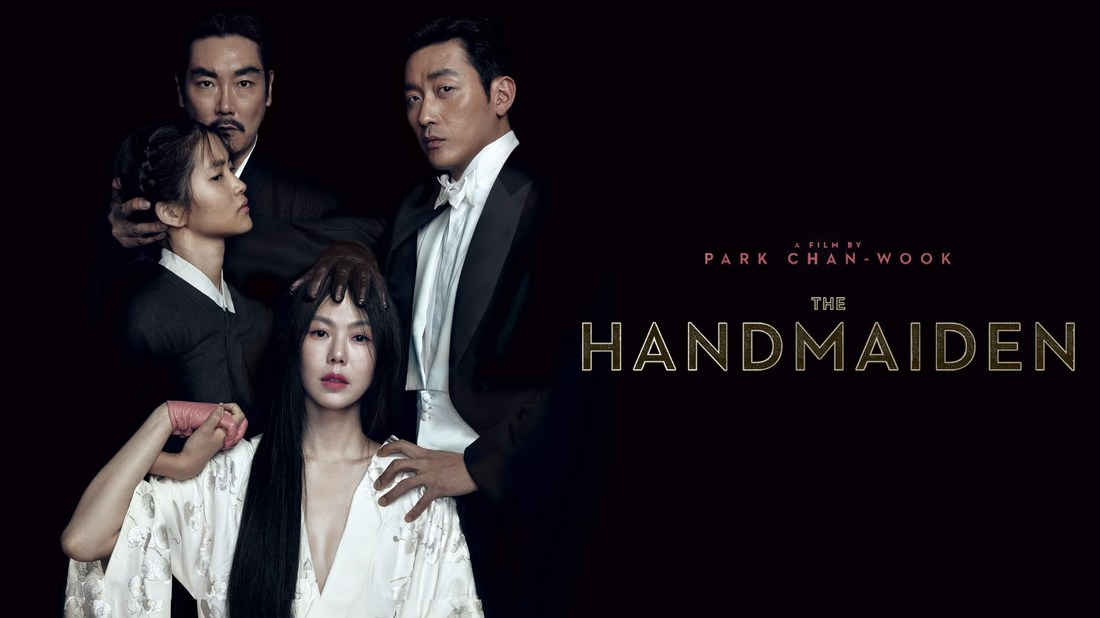
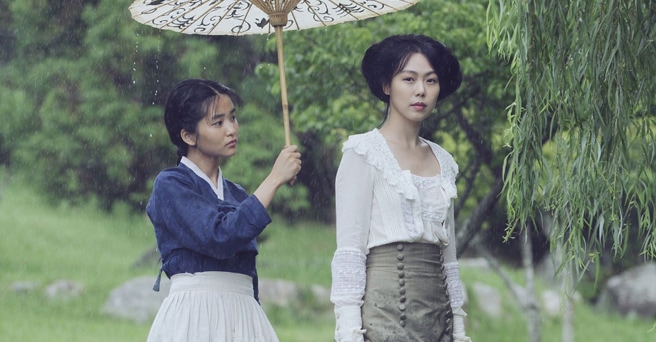

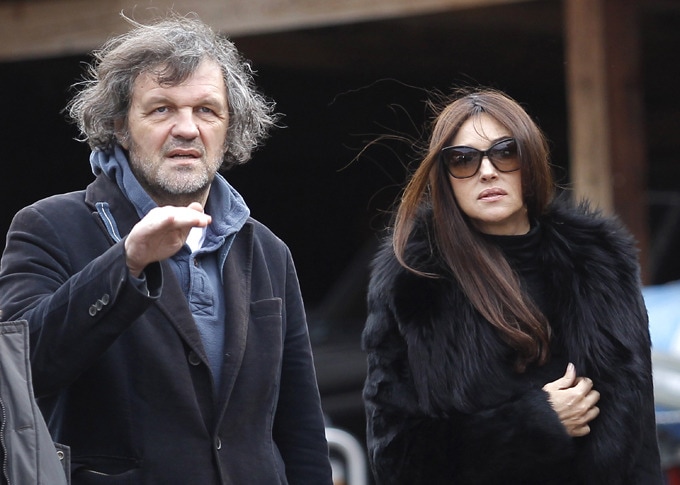
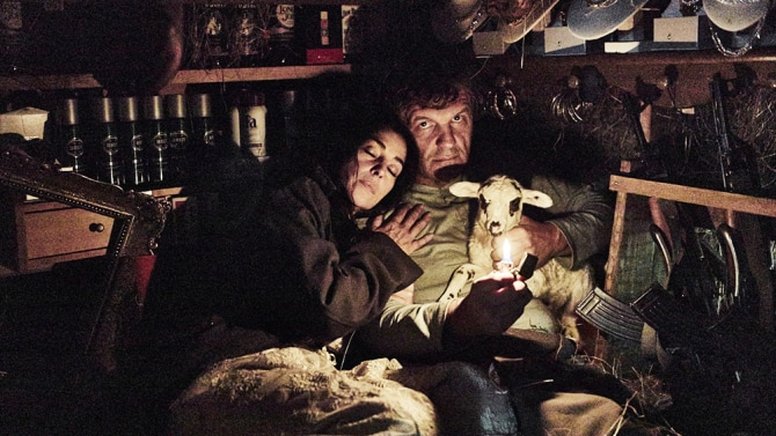
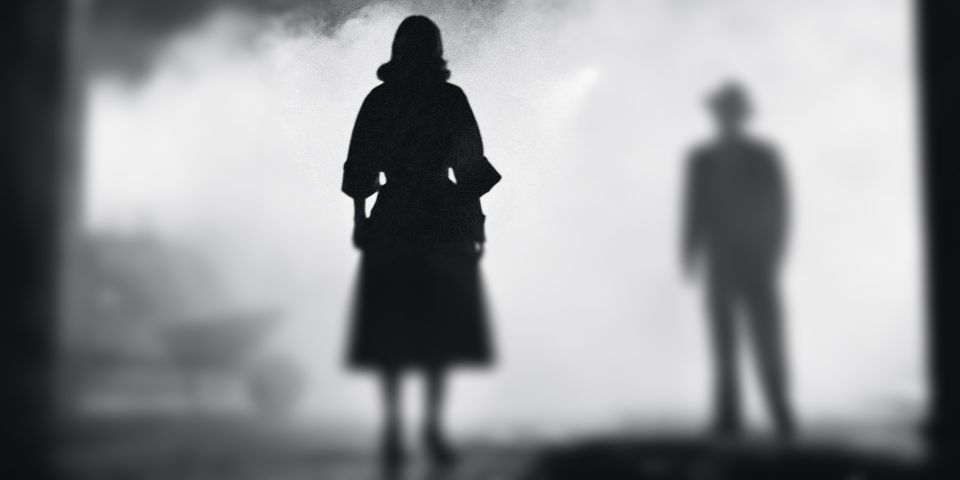
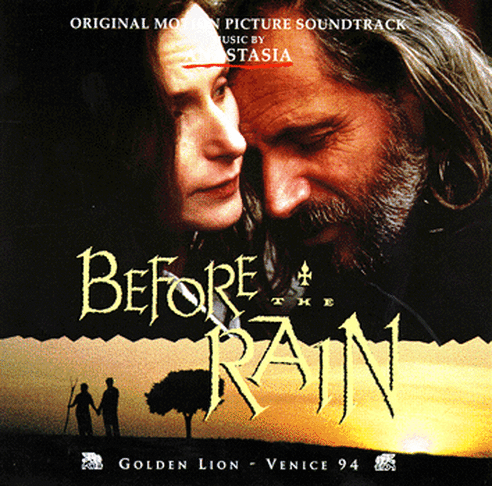
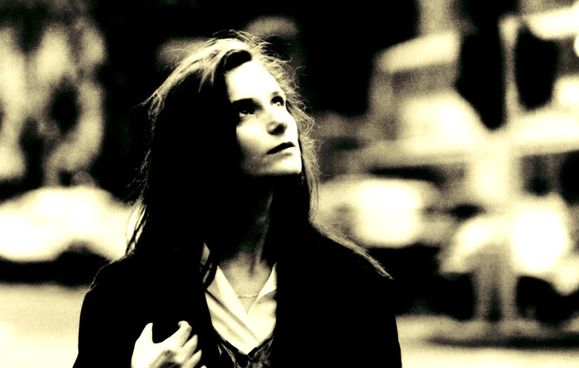
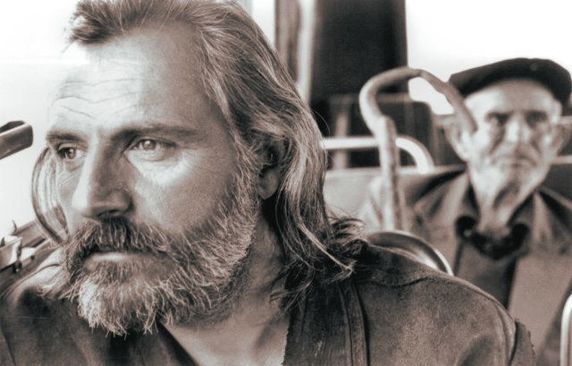
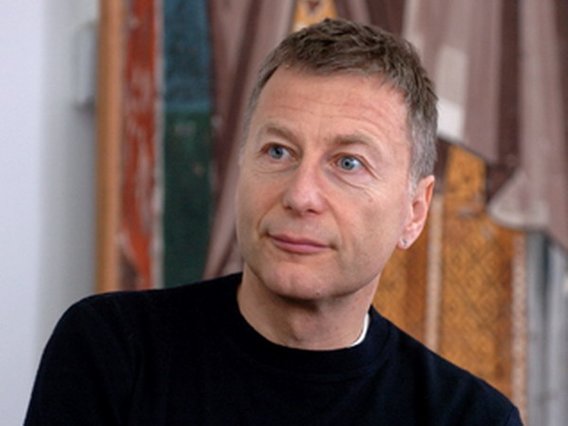
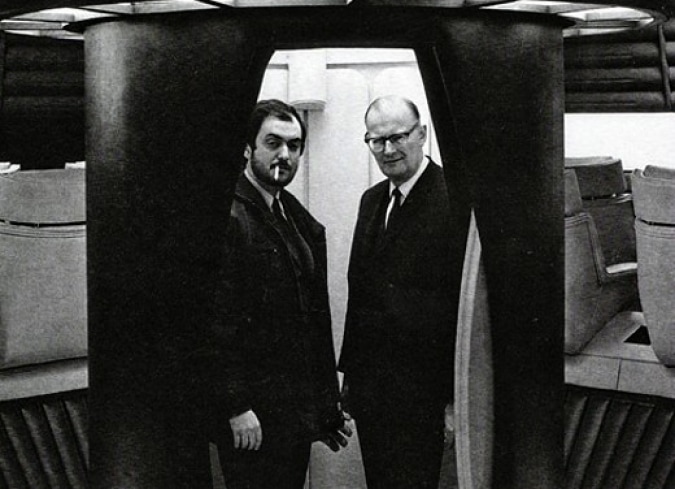
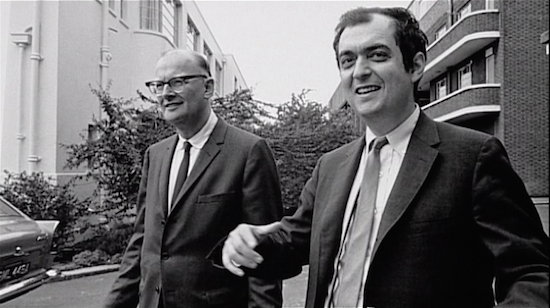
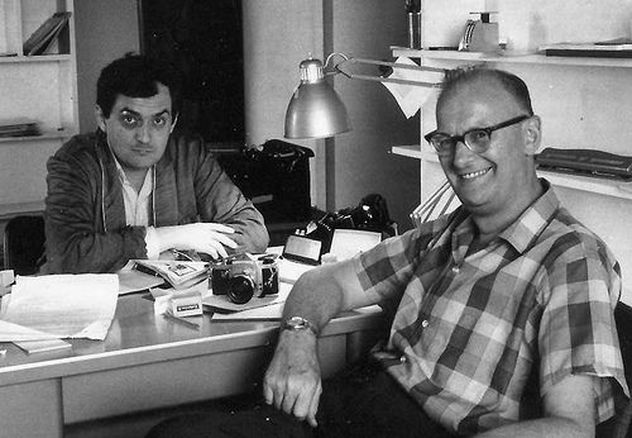
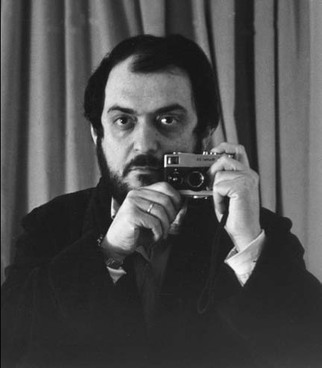
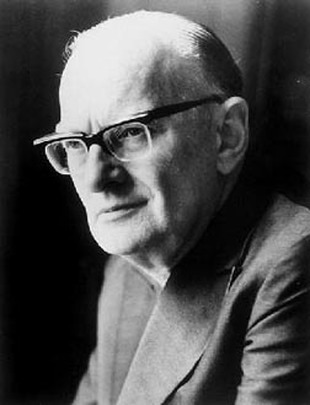
 RSS Feed
RSS Feed
